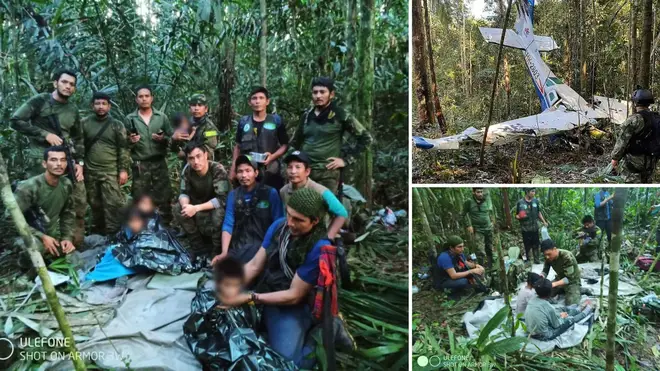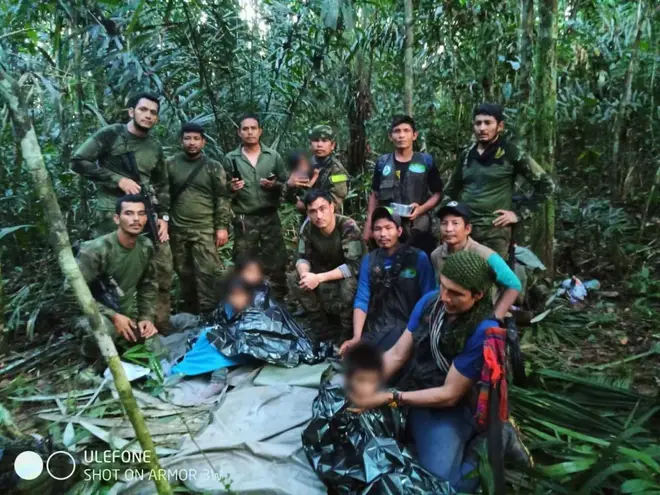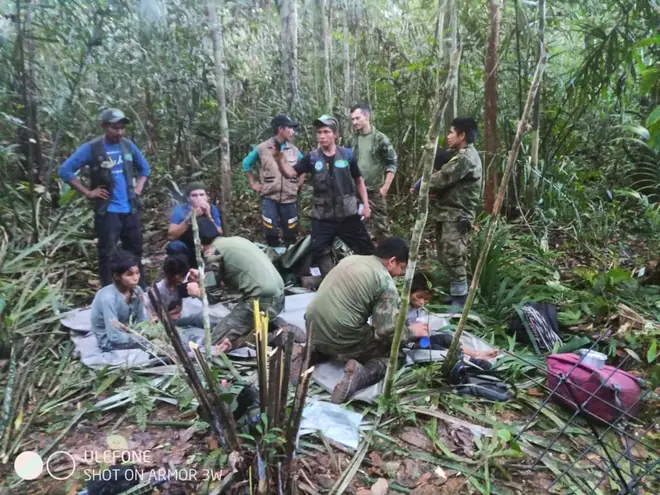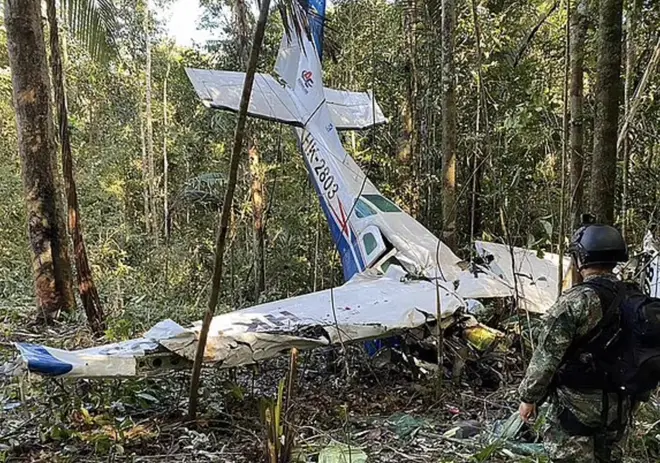
Nick Ferrari 7am - 10am
12 June 2023, 09:27

Fresh harrowing details have emerged about how four indigenous children managed to survive 40 days in the Amazon after their plane crashed.
The Huitoto indigenous children, aged 13, 9, five and one were rescued and airlifted out of the Amazon on Friday and are now recovering in a military hospital in Bogota.
In a televised interview yesterday, members of the rescue group recounted the first moments they found the children.
They said the eldest child ran towards them holding a baby. “I’m hungry” and “my mum is dead” were the first words spoken, rescuers say.

Nicolas Ordonez Gomes, one of the search and rescue crew, told public broadcast channel RTVC: “'The eldest daughter, Lesly, with the little one in her arms, ran towards me. Lesly said: "I'm hungry.”
“One of the two boys was lying down. He got up and said to me: "My mom is dead.”
The four children had been lost in the jungle since May 1, when the Cessna 206 in which they were traveling crashed.
Listen and subscribe to Unprecedented: Inside Downing Street on Global Player

The children are expected to remain for at least two weeks in hospital receiving treatment after their rescue on Friday but some are already speaking and wanting to do more more than lying on a bed, according to family members.
Manuel Ranoque, father of the two youngest children, told reporters outside the hospital on Sunday that the oldest of the four surviving children - 13-year-old Lesly Jacobombaire Mucutuy - told him their mother was alive for about four days after the plane crashed on May 1 in the Colombian jungle.
Mr Ranoque said that before she died, the mother likely would have told them "go away", apparently asking them to leave the wreckage site to survive. He provided no more details.

Fidencio Valencia, a child's uncle, told media outlet Noticias Caracol the children were starting to talk and one of them said they hid in tree trunks to protect themselves in a jungle area filled with snakes, animals and mosquitoes. He said they were exhausted.
"They at least are already eating, a little, but they are eating," he said after visiting them at the military hospital in Bogota, Colombia. A day earlier, defence minister Ivan Velasquez had said the children were being rehydrated and could not eat food yet.
The children were travelling with their mother from the Amazonian village of Araracuara to San Jose del Guaviare when the plane went down.
The Cessna single-engine propeller plane was carrying three adults and the four children when the pilot declared an emergency due to engine failure. The small aircraft fell off the radar a short time later and a search for survivors began.
Dairo Juvenal Mucutuy, another uncle, told local media that one of kids said he wanted to start walking.
"Uncle, I want shoes, I want to walk, but my feet hurt," Mr Mucutuy said the child told him.
"The only thing that I told the kid (was), 'when you recover, we will play soccer," he said.
Authorities and family members have said the children survived eating cassava flour and seeds, and that some familiarity with the rainforest's fruits were also key to their survival. The children are members of the Huitoto indigenous group.
After being rescued on Friday, the children were taken in a helicopter to Bogota and then to the military hospital, where President Gustavo Petro, government and military officials, as well as family members, met the children on Saturday.
An air force video released on Friday showed a helicopter using lines to pull the youngsters up because it could not land in the dense rainforest where they were found.
The military on Friday tweeted pictures showing a group of soldiers and volunteers posing with the children, who were wrapped in thermal blankets. One of the soldiers held a bottle to the smallest child's lips.
General Pedro Sanchez, who was in charge of the rescue efforts, said that the children were found three miles away from the crash site in a small forest clearing. He said rescue teams had passed within 20 to 50 metres of where the children were found on a couple of occasions but had missed them.